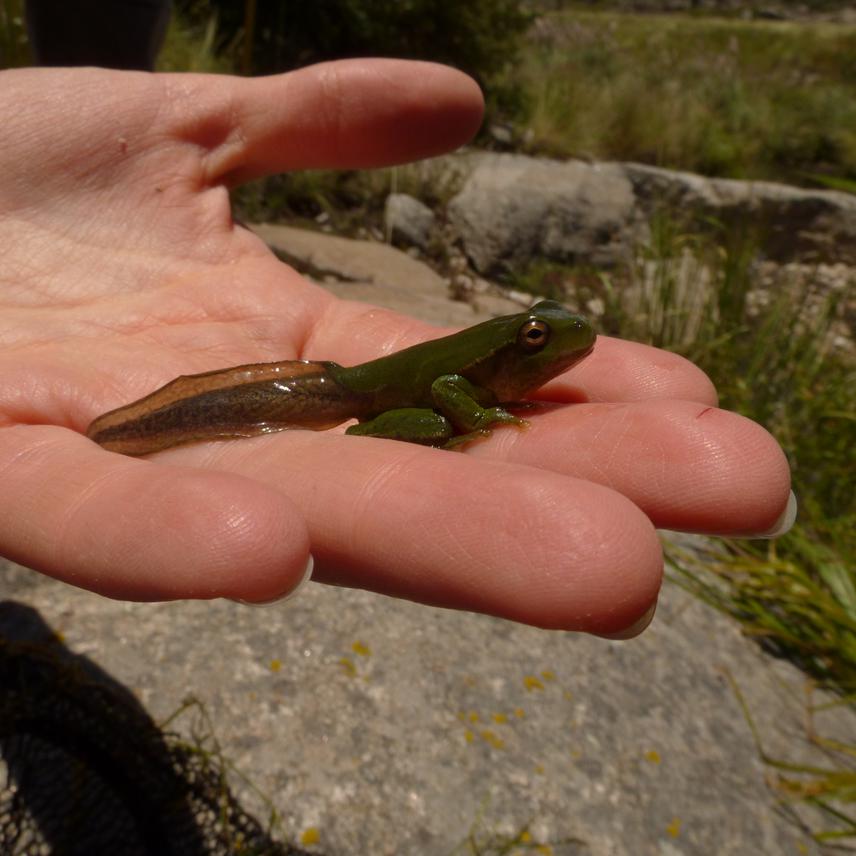Julian Lescano
Other projects
3 Feb 2009
Habitat Loss and its Effects on Amphibians Diversity in the Arid Chaco of Cordoba
We hope to generate scientific information useful for the management of trout populations in Sierras Grandes Mountains, and to generate materials directed to raise awareness regarding amphibian conservation, and the problematic of biological invasions

Hypsiboas cordobae tadpole.
The mountain ranges of Cordoba province (Argentina) have a high degree of geographic isolation and represent an important area of endemism. Among the endemic fauna that inhabit this priority conservation area, there are seven species of amphibians (some listed as Near Threatened or Vulnerable by the IUCN). These threatened species have evolved in fishless rivers and streams and therefore are highly vulnerable to predation. However, in the past century, there has been a systematic introduction of rainbow trout (Oncorhynchus mykiss) by anglers and authorities in the area. Exotic salmonids have a deep negative impact on naïve amphibians since they are voracious and actively feed on tadpoles. However, the impact of trout on mountain amphibians from Córdoba has never been evaluated. Due to the lack of scientific information, current regulatory policies favours trout presence, and anglers continue with the introduction of trout year after year, seriously jeopardizing the endemic fauna from Cordoba Mountains. We hope to generate and transmit knowledge related to trout invasion problems to different stakeholders and social actors, including rural schools students, tourists, NGOs, government agencies and park rangers. The latter is particularly important because, mostly due to a lack of knowledge, visitors and locals have a positive perception regarding trout in the rivers.
We hope to achieve a change in people's perception by generating didactic material, disseminating this information in touristic sites of the study area (e.g. outdoor activities sites, trekking areas) and by training park rangers through dissertations about the importance of amphibians, their conservation and the threats they face, both globally and locally.